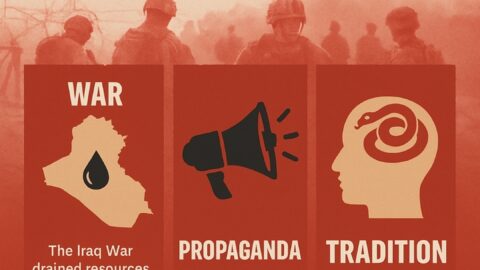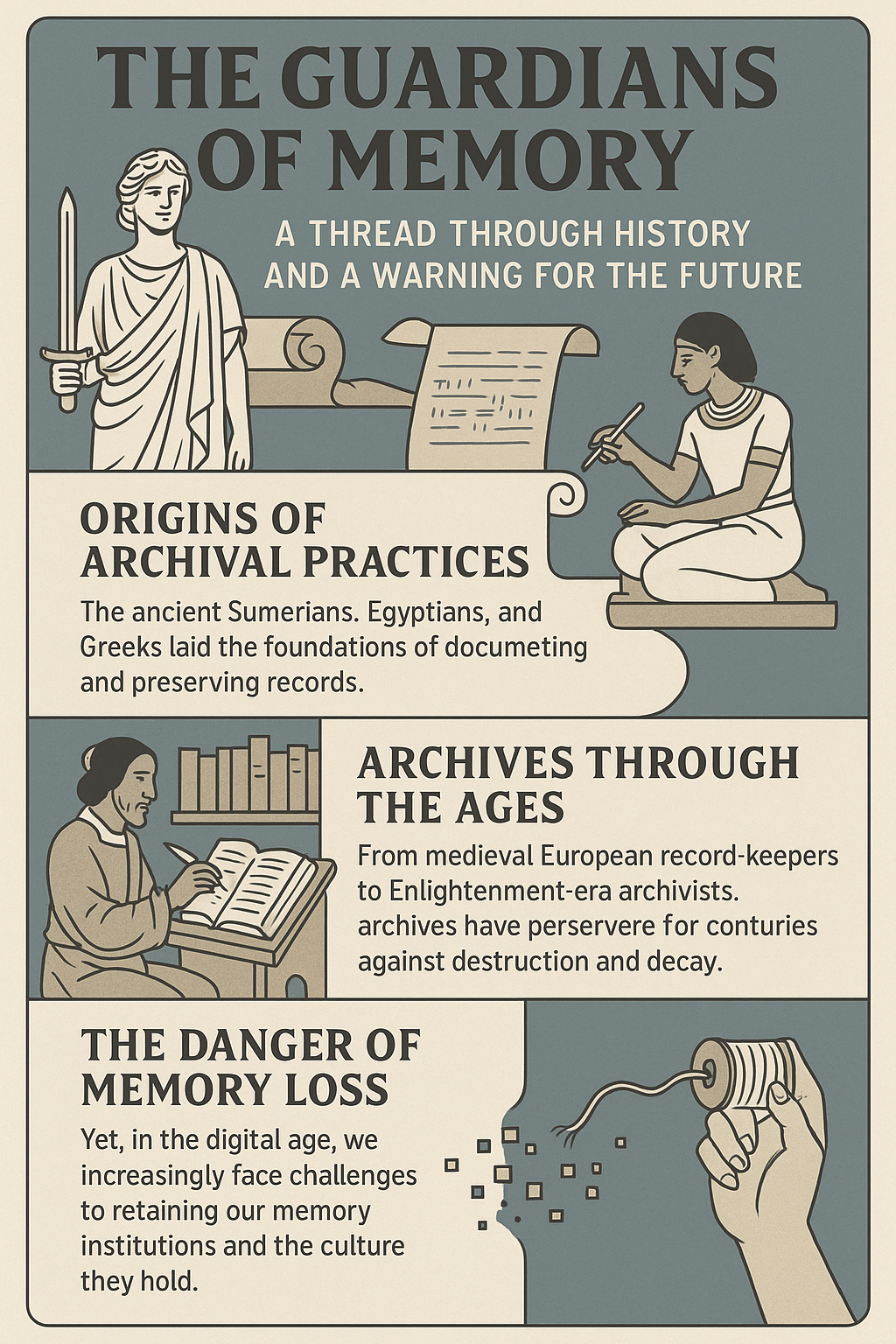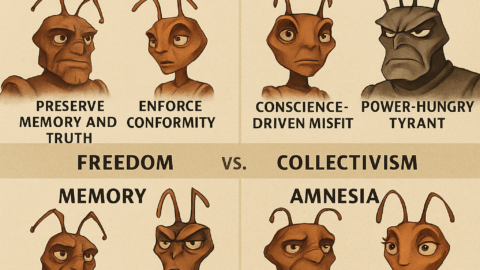Authors Note: In order to understand the background of the Reconstruction of America after the Civil War, we suggest reading the article below to see how legislation can look good short term, but can be used as a piecemeal to string along dangerous oppression in the long run.
- Our Secret Constitution: How Lincoln Redefined American Democracy
- Crisis of the Two Constitutions: The Rise, Decline, and Recovery of American Greatness
- The American Republic VS The American System
The 13th Amendment freed Black Americans while “enslaving the world by giving corporations natural rights” stems from a critical interpretation of how U.S. constitutional law and corporate power evolved in the aftermath of the Civil War.
To understand this perspective, it is crucial to break it into two parts:
The 13th Amendment:
The 13th Amendment, ratified in 1865, abolished slavery and involuntary servitude, except as punishment for a crime. It was a historic step towards the emancipation of enslaved African Americans in the United States. However, the exception clause in the amendment (permitting involuntary servitude as a punishment for crime) has been criticized for contributing to the rise of mass incarceration, which disproportionately affects Black communities today. This forms the basis of one part of the critique, arguing that it replaced one form of oppression with another.
Corporations and Natural Rights:
The second concept of corporations gaining “natural rights.” This perspective is linked to the interpretation of the 14th Amendment, which was initially intended to provide equal protection under the law to freed slaves. However, in the late 19th century, corporations began to use the 14th Amendment to claim certain protections and rights originally intended for individuals.
In 1886, in the Santa Clara County v. Southern Pacific Railroad Company case, although the Supreme Court did not explicitly rule on this matter, a headnote added by the court reporter stated that corporations were considered “persons” for purposes of the 14th Amendment. This legal precedent laid the groundwork for the extension of certain rights, such as property rights and free speech, to corporations.
How These Ideas are Interconnected:
The critique suggesting that the 13th Amendment “freed Blacks but enslaved the world” refers to a broader argument about how political and legal shifts aimed at emancipation were later co-opted to serve powerful interests, such as corporations. The 13th Amendment ended one form of physical slavery, but critics argue that the subsequent legal recognition of corporate rights through the 14th Amendment created a new type of economic and legal “enslavement” by allowing corporations to exercise undue influence and power.
Key Points in This Critique:
Legal Personhood: The extension of 14th Amendment protections to corporations effectively recognized them as “legal persons,” which critics say places the rights of corporations on par with or above those of actual citizens.
Corporate Power: With the legal protection granted to corporations, critics argue that the resulting concentration of wealth and political influence has effectively enslaved workers and citizens within an economic system where corporations dictate many aspects of public policy and social life.
Economic Inequality: There is a critique that modern crony-capitalism and corporate power have exploited and perpetuated new forms of economic oppression globally, leading to issues like wage slavery, poor labor conditions, and environmental degradation.
This critical interpretation is not about the 13th Amendment alone but rather about a broader trajectory in American constitutional and economic history. It highlights how constitutional amendments intended to provide freedom and equality were later utilized to grant extensive rights to corporations, which, according to critics, led to new forms of systemic oppression in the economic and political spheres.
Modern Concerns in Utah:
Amendment C in Utah aims to constitutionally secure the election of county sheriffs by voters, preventing counties from potentially altering this method in the future. Supporters argue that it strengthens voter rights and ensures local control, establishing the office of the sheriff as an elected and accountable position. Currently, sheriffs are elected, but it’s not a constitutional requirement in Utah, meaning counties could theoretically change this through other local means. Amendment C would embed the election of sheriffs within the state’s constitution, making it more challenging to alter.
Critics of Amendment C warn of risks in constitutionalizing such positions, as it could entrench power and limit accountability measures. For instance, the amendment might make it harder to remove a sheriff who loses their POST (Peace Officer Standards and Training) certification due to misconduct. By enshrining the election of sheriffs, the amendment could complicate law enforcement reforms and hinder adaptability to changing community needs or professional standards.
This debate has similarities to broader concerns in the U.S., such as those raised by the 13th and 14th Amendments regarding the concentration and entrenchment of power in the hands of corporations or political figures. Detractors of Amendment C argue that just as these Amendments inadvertently granted corporations undue influence, Amendment C could unintentionally give unchecked authority to unknown figures (follow the money), complicating democratic oversight and accountability.







